#ICON ttrpg
Explore tagged Tumblr posts
Text
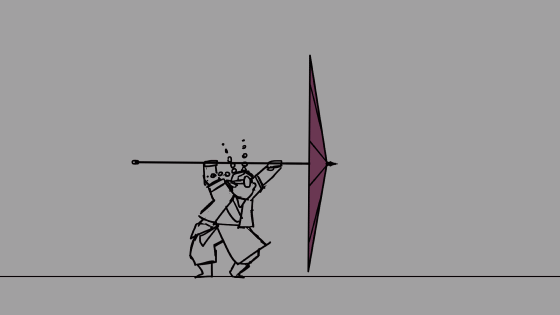
showing off some brella moves
#ICON ttrpg#iconrpg#ttrpg#animation#she a bastion so defense is her game#may animate some of her actual abilities from the book#enu of a thousand palms#my art
918 notes
·
View notes
Text

holiday mini-tradition for me is drawing chibis of my OCs for christmas ^_^
#the one time of year they get to be happy 😔😊#art#ttrpg#d&d#pathfinder 2e#ICON ttrpg#ocs#chaska#maru#siffrin finch
52 notes
·
View notes
Text
7 Fantasy RPGs to fill the D&D-shaped Hole in your Life
So. It finally happened. Either Hasbro, or Wizards of the Coast, or someone else associated with Dungeons & Dragons finally did something so fucked-up that you've decided to swear it off entirely.
The problem is that for decades, there has been one obvious answer to the question of "What game with Dwarves, Longswords and Wizards in it should we play" and that was D&D, every time. Even their strongest rival in the past couple of decades was just an older version of D&D with a spit shine.
Now you find yourself adrift in a sea of possibility, with no signposts. There are names you've heard, but you have no idea which ones you'd actually be interested in, because you had always just assumed you'd be playing D&D until the heat death of the universe.
So let's take a look at a few games that want to fill that D&D-shaped hole in your gaming life, and examine what they're offering.
Disclaimer: I'm not covering the entire breadth and depth of the TTRPG industry here. I'm specifically going to be covering Fantasy RPGs that should appeal to D&D fans here. So if I didn't cover your favourite indie RPG, sorry. But there has to be a "First step" outside of the D&D bubble, and each of these games should fulfill that need.
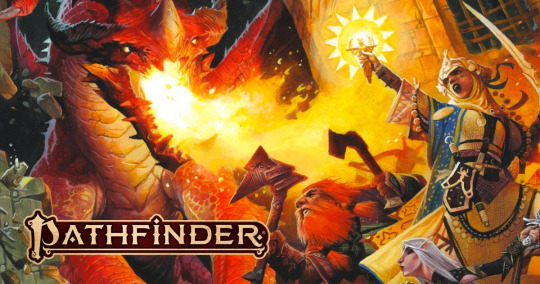
The Other "Kitchen Sink" Game: Pathfinder
If you can't bring yourself to keep playing the corporate game, but you still want something that offers as close to that gameplay experience as you can possibly get, your best bet at the time of this writing is probably Pathfinder 2nd Edition.
I say this as someone who very much did not vibe with the original Pathfinder, or its "D&D in space" sister product Starfinder. But at this point, I'd absolutely tell a newcomer to jump into Pathfinder 2E before I recommended they buy any WotC product.
To their credit, the 2nd Edition of Pathfinder does much more to, uh, find its own path by diverging from 3.5 edition and implementing new systems that take it into uncharted territory. The "Two Actions Per Turn" paradigm is often cited by its proponents as being a meaningful improvement over the 5E way of doing things.

The "TTJRPG": Fabula Ultima
One of the biggest success stories of the early 20's was Fabula Ultima from NEED Games in Italy. It came seemingly out of nowhere to win the ENnie Gold Award for Best Game of 2023. Since then it's become notoriously difficult to find in print, though it's still freely available as a PDF.
Fabula Ultima is a "TTJRPG," modelled after Japanese fantasy video games like Final Fantasy, Dragon Quest, Phantasy Star, Breath of Fire, etc. While it's firmly planted in the Fantasy genre, its gameplay will also very recognizable to fans of those types of games.
The major benefit of this conceit is that you can probably already picture how combat in FabUlt works in your mind: Two rows of characters take turns jumping and slashing at each other, or casting magical spells to harm, heal, or apply status conditions. There's no concept of "Spacing," but the game still manages to be mechanically intricate with lots of varied class abilities and status effects to apply.
D&D refugees looking for a game where you simply pick a class and fight some monsters, but aren't too particular about how they do that, will find a lot to love here. FabUlt leans much more heavily on storytelling mechanics than D&D does, so players who've been looking for something a bit more "Theater of the Mind" should be well taken care of here.

Final Fantasy Lancer: ICON
Like Fabula Ultima, ICON is a TTRPG that takes heavy inspiration from JRPGs, specifically tactical games like Final Fantasy Tactics and Tactics Ogre. It's from Massif Press, who also authored the surprise indie Mech combat hit Lancer.
And like Lancer, ICON is a game with two very distinct rulesets: Outside of combat, a "Fiction-first" narrative system inspired heavily by Blades in the Dark; In combat, a grid-based tactical skirmish game reminiscent of D&D 4th Edition. All backed by the gorgeous art of its author Tom Parkinson-Morgan, who also writes and illustrates the comic Kill Six Billion Demons.
ICON separates its "narrative" class system from its combat class system, giving each character two distinct character sheets that come into play at different times. Because those two systems don't have to cross over very much, each can be as intricate or as rules-light as it needs to be to promote the type of gameplay most appropriate for the situation.
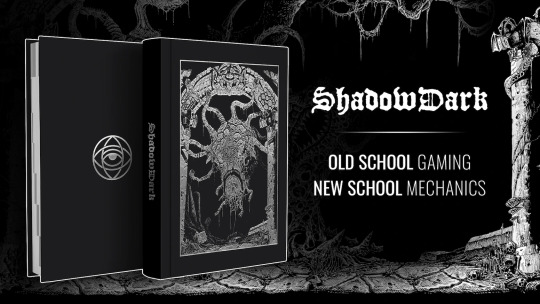
The Old-School Gateway Drug: Shadowdark
If you ever took a few steps outside of the walled garden that is D&D in the past few years, you will likely have read or heard of the OSR, or "Old-School Revival/Renaissance." Proponents of the OSR are players who yearn for an older style of Dungeon Crawling Survival Horror game that hearkens back to the early days of D&D, before the players became akin to superheroes.
Shadowdark aims to be a game that bridges the gap to that style of gameplay, without being totally unfamiliar to players who only ever learned 5th Edition mechanics. It's "Old-School gaming, modernized."
Aside from simply being a modern take on a D20 fantasy game, it freshens up gameplay using a mechanic called the "Torch Timer." It turns light into a resource that dwindles in real time. This serves to elevate the tension of the game as every minute that passes is one less minute of light on your torch. And when the torches run out, well... You can probably guess what happens next.
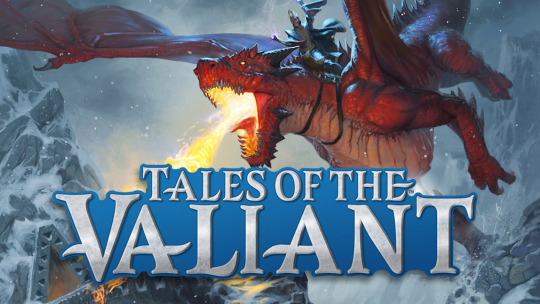
5th Edition with the Serial Numbers Filed Off: Tales of the Valiant
Tell me if you've heard this one before: Wizards of the Coast introduces sweeping changes to its "Open" license model, leading existing 3rd-party content creators to create their own version of an older ruleset to protect the viability of their backlog. It happened in the past, but what are the chances that happens a second time? Ha!
Well... It did happen again. This time, playing the role of the "Paizo" in this scenario is Kobold Press, who loudly declared that they were "Raising the Black Flag" in response. In order to ensure that there would always be a "Core Fantasy" ruleset that would remain compatible with their content, they announced Tales of the Valiant, which would essentially duplicate the 5th Edition ruleset with a bit of a spit shine, in much the same way that Pathfinder did for 3.5 Edition.
Tales of the Valiant will be the game for the D&D player who just wanted a rules refresh of 5th Edition, but also doesn't want to keep throwing money at the corporate hegemony. It should end up being "The 5E you can feel good about supporting," and that matters right now.
youtube
Matt Colville's Big Bet: The MCDM RPG
Kobold Press was not the only publisher of third-party D&D content to have a strong reaction to the OGL fiasco. Unlike Tales of the Valiant however, Matt Colville's response was to announce a fully new Fantasy RPG system, with no expectation of backwards compatibility with any edition of D&D.
MCDM's sights are firmly set on the "Post-Kitchen-Sink" future, and to that end their game is explicitly not trying to be the one game for every possible playstyle. It's Tactical, meaning you'll need a grid to play it on, and it's Heroic, meaning characters should feel powerful, and not like they're constantly one critical hit or failed trap-sensing check away from being decapitated.
This approach might seem like a massive risk considering how insanely powerful 5th Edition became at its peak. But a record-breaking crowdfunding campaign backed by over 30,000 people shows that there is at least an appetite for something new, and that there is a like-minded community of players ready and waiting to join you.
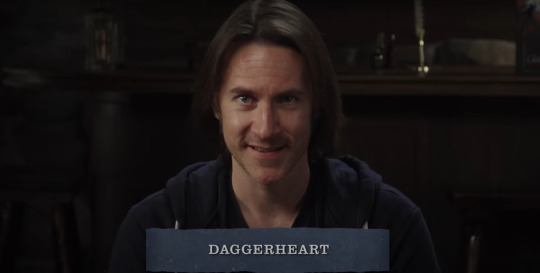
The Critical Role Game: Daggerheart
If the Kobold Press announcement was a shot across the bow, and the MCDM crowdfunder was a bomb dropped, then Daggerheart is a full-blown asteroid, streaking straight towards Wizards of the Coast HQ.
Daggerheart is an original Fantasy RPG from Darrington Press, the publishing arm of the Critical Role media company. That by itself should mean something considering how important CR is to the D&D brand, but there's more to talk about here. Though it superficially resembles D&D in a lot of ways, it has some extremely important differences. Namely, its use of "Powered by the Apocalypse" mechanics such as "Fail Forward" dice rolling and "No Initiative" combat.
While "PbtA" has become somewhat of a loaded term in the D&D community, Critical Role has an opportunity to overcome that stigma with the sheer force of their platform. I've made this case already in the past, but if they were to use their power to do for themselves what they did for 5th Edition, it would be the most significant threat to the Hasbro Hegemony to emerge since Pathfinder. Let alone taking just a slice, Daggerheart has the long-term potential to take the whole damn pie.
And more!
The games I've listed here are all theoretically capable of replacing the Corpo game as your "go-to" long-term game. Not all of them are fully playable as of this writing, but they all represent one possible future for the "Sword and Sorcery" RPG genre.
There are of course a whole plethora of other games out there beyond the limited scope of "Medieval Fantasy" that are just as valid and just as viable, if you're feeling a bit more adventurous.
If you're looking for something explicitly tactical like a miniature skirmish game, but still in the RPG genre, and you're willing to expand your choice of genre beyond Euro-centric Medieval Fantasy even further beyond ICON, you might be interested in Gubat Banwa or the aforementioned Lancer.
If you want a game that promotes a slightly more streamlined, less mechanically-intricate approach to combat while still giving you tons of monsters to kick the shit out of, you might want to check out the "Illuminated by LUMEN" family of games inspired by the games LIGHT and NOVA from Gila RPGs. It might even inspire you to write your own RPG!
If you're more interested in the Old-School Renaissance, you might want to check out Forbidden Lands, Dungeon Crawl Classics, Old-School Essentials, or MÖRK BORG.
If you like the idea of "Old-School Roleplaying" but are also willing to step outside of the fantasy genre into Sci-fi territory, you might be interested in Stars Without Number, its Cyberpunk sister product Cities Without Number, or Mothership.
Finally, if you just want a game that focuses on telling the best story rather than mindlessly killing monsters and acquiring loot, you might want to check out Blades in the Dark, Thirsty Sword Lesbians, Girl by Moonlight, Coyote and Crow, and many more Fiction-First games in the Powered by the Apocalypse and Forged in the Dark genres.
But most importantly: Just play more games! Don't just buy them, play them! The point of this whole exercise is to replace the monopoly with a plurality, for the sake of the health of the tabletop gaming industry.
Because the next time Hasbro lays off a bunch of WotC employees, there should be a much stronger, more diverse industry for them to land in feet-first. We should all want for the people who build the games we love to feel safe in their career choice. Not just for the sake of the ones who are already there, but for future prospective designers and artists who want to make their mark.
It should be viable to be a tabletop game designer outside of just making more D&D stuff forever, because as we've seen, it's not safe to assume that we can all just keep doing the same thing we've been doing and not get bit on the ass by it.
If we want that future, we have to take it into our own hands and build it ourselves. But if there's one group of people that knows about building something very big from very little, it's TTRPG players.
#ttrpg#icon rpg#icon ttrpg#mcdm#pathfinder#fabula ultima#kobold press#tales of the valiant#daggerheart
109 notes
·
View notes
Text
i suppose ill be nice and post some art without being prompted! here's a new, updated reference for my ICON character, hel-vyss athyov!
she'll be featured in a friend-ran campaign, as the stalwart demon hunter, with the bond "the elder" or "the mighty" depending how i go about it.
she's my 7-8 foot ~60-70 year old (though still very much kicking like shes in her prime) beastkin, a snow leopard with a giant sword


9 notes
·
View notes
Text

An ICON Enochian I quickly whipped up for a test session. Surprisingly robust system! Excited to get into it.
18 notes
·
View notes
Text
Heart, Elemental of Time. A party member in he Homebrew Icon game I'm in.

5 notes
·
View notes
Text
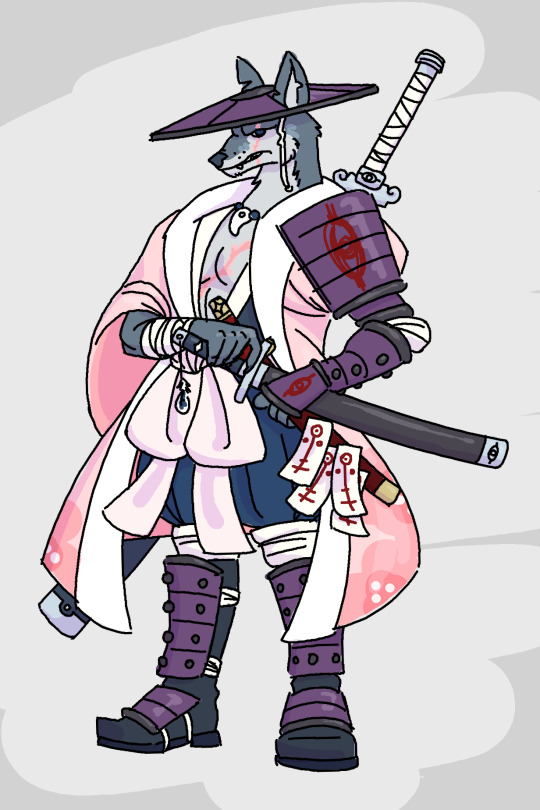
I gotta draw stuff or otherwise people will think I'm dead or something
ICON TTRPG demons slayer beastfolk guy
52 notes
·
View notes
Text



Gazar Pove, his original character design back when he was an ICON ttrpg character as a Geomancer. That game is a blast! I was heavily inspired by mongolian wrestlers.
40 notes
·
View notes
Text




some more silly OC doodles using the bases from @cosmindart
#Pollux#Raziel Gurathnaka#Euyric Locke#Lokee#Dungeons and Dragons#DnD#D&D#Vampire the Masquerade#VtM#Icon ttrpg#AJ Arts#Doodlebop
8 notes
·
View notes
Text
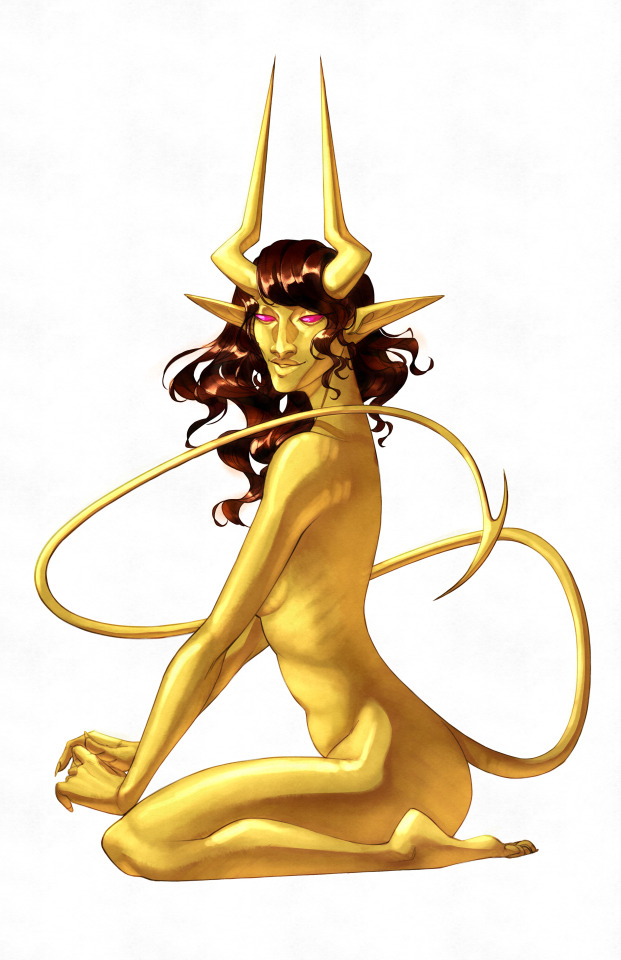
23.09.12
Miss Jo, the pretty bar proprietor you'll ever meet. A long awaited commission for @justgyr of her character's not so good at momming mother.
10 notes
·
View notes
Text
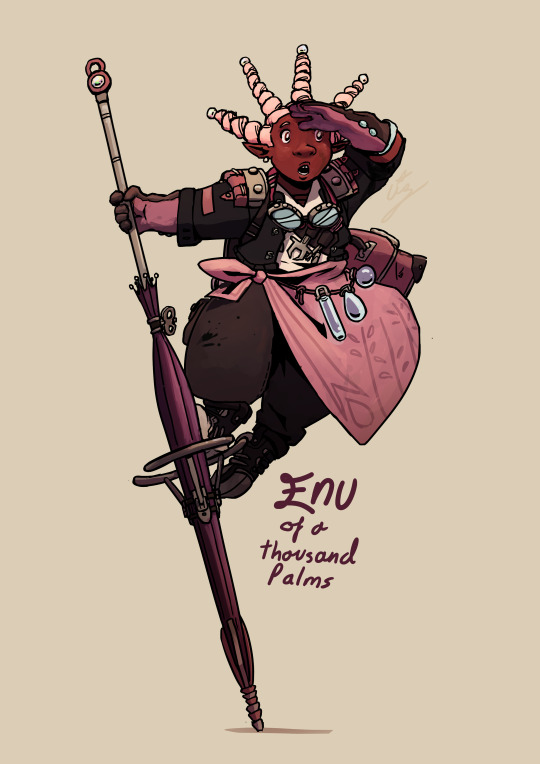
an ICON ttrpg character - traveling mender with a big ol' brella
509 notes
·
View notes
Text

waugh,,, d&d/ttrpg doodle,,,,,,, runs away & explodes into smithereens
#wanted to draw them as different monsters :3#i draw lots of furry stuff but honestly my biggest comfort thing to draw is my different tabletop characters in Situations#despite that i post maybe 5% of the ttrpg stuff i draw XD i know its not typically what ppl follow for and thts ok :p#art#d&d#pathfinder#icon ttrpg#maru#chaska#siffrin finch
55 notes
·
View notes
Text
Character-first Fantasy TTRPGs
Games like Lancer, Gubat Banwa, ICON, Draw Steel, Daggerheart, even Fabula Ultima sometimes get described as "4E Inspired."
I think that's true in a broad sense, but there's something deeper that connects all of these games that 4E doesn't have, and that's a respect for the narrative journey of the characters.
None of the games I've listed have the traditional "Death Saving Throw." You never have to tear up your character sheet because a Skeleton got a lucky Crit in the first combat of the game, and the Bard didn't have Healing Word prepped.
Each of these games either give the player mechanical choices to choose how close to death their character ever gets (Lancer, Daggerheart, Draw Steel) or they make the consequences of defeat entirely narrative (Gubat Banwa, ICON, Fabula Ultima).
World-first vs. Character-first
I was having difficulty putting this categorization to words until I read a post from makapatag, the author of the aforementioned Gubat Banwa. In that article, he lays out a way of thinking about OSR games as being "World-first," as opposed to games like D&D, Exalted, and Lancer which are "Character-first." In World-first games, the character is never so powerful that they can override the dangers of the environment. They have to adapt to the setting to survive.
I understand the allure of this type of play, especially from the GM's standpoint. But at the same time, I find that I am most comfortable when I am at least sharing in the direction of the narrative. When the game has rules that put the players' characters in the driver's seat of the narrative, it lessens the burden on the GM to tell a story, but expects more of the players in return.
Bizarro-OSR
So in this way, "Character-first Fantasy" works as a sort of "Anti-OSR," a celebration of powerful PCs running roughshod in a fantastical sandbox. Not exactly a "New School Renaissance" though, because these ideas aren't necessarily new.
I think this style of play describes how a lot of people approach D&D 5E, since it has a lot of rules that describe abilities and spells that make the players increasingly harder to corral as they gain levels.
At the same time, I think games like 5E and Pathfinder have their feet planted too far in the past to consider either of them to be truly a part of this genre. Both have very punishing death mechanics that can turn seemingly easy encounters into painful death spirals that lead to torn-up character sheets.
The Only Time I Was Ever Happy
I can't stress enough just how much it changed the game to play a Warforged for the first time in D&D 4th Edition. In that edition, Warforged have a rule that they can never roll lower than 10 on their death saving throws. That meant that unless they were being actively attacked while knocked out, they would never just "bleed out."
When I didn't have to worry about losing my character, I could take risks that I thought a "Superhero" would take. It led to me getting my ass beat mercilessly, on many occasions, but I think that's what a hero would do: They would take on any amount of suffering if they believed it would make the world a better place for the people they loved.
Power Fantasy?
You could maybe classify this style of game as being strictly based around Power Fantasy. But I think it's more about the rules supporting the player's exploration of their concept than strictly being about overpowering every obstacle put in front of you.
In any game that is trying to tell the story of a character, there have to be ups and downs. I don't think it's either necessary, or even good for the players to always win. But as long as the mechanics of the game aren't punishing you for being defeated, you have more freedom to push yourself for the sake of the narrative.
Some people derisively refer to this style of play as "Superhero" fantasy, and I don't think that's necessarily incorrect, but... It's also fun. There's nothing inherently wrong with letting your players romp around in giant robots, as long as they acknowledge the responsibility they've just been handed.
When you play in a very punishing adventure or system for the first time, you realize quickly that farting around will get you killed. Enjoy sitting out the rest of the adventure because you tried to do a skateboard trick over that Iron Golem, smarty pants.
It makes that feeling of power in a more Character-centric game that much more rewarding. But you also realize just how hard it is for the GM to keep you reeled in. In these games, it's very important for open collaboration between the GM and the players. It's really hard for the GM of a Character-centric game to plan a narrative when the players can constantly kick down the walls of the setting that are supposed to be constraints to them.
Rules-Medium?
One of the biggest changes D&D made in the leap from 4th to 5th was an overhaul of the rules that left a lot more room for narrative improvisation than 4th Edition or even Pathfinder.
That's not to say that these games necessarily need a rules-light approach. The important thing connecting them is that the rules support the fantasy that the characters represent. If my character is good at fighting, I want mechanics that help to reflect that in the game world, without resorting to handwaving.
For this reason, I think a lot of more "fiction-first" games in the PbtA or FitD mechanical genre get disqualified here. They tend to focus a lot on the narrative consequences of the interactions between the characters and the setting, and frame the players' powers less as "tools to conquer the setting" and more as "prescriptive ways to move toward your goals in a narrative-appropriate way." Does that make sense?
For a true rules-light approach to this budding genre of ttrpg, I would check out any game in the LUMEN system family of games from Spencer Campbell at Gila RPGs. I'm excitedly anticipating my Kickstarter copy of Infinite Revolution from Gwendolyn Clark to arrive, I think that game is going to really kick ass.
Well, Anyways
I wrote a lot of this on not a lot of sleep. My mind has been racing, trying to put a lot of these ideas to words. The aforementioned blog by makapatag really helped to put a lot of my thoughts about the current (and future) state of Fantasy into focus.
It's entirely possible, also, that this idea is not new. I'm sure there's someone out there who has had the same thought as me, and my lazy ass never actually tried to find their writing. Instead I just wrote it out again, because I'm a huge PIECE OF CRAP.
Anyways, sleepy tea is kicking in, good night.
#daggerheart#mcdm#dnd5e#dnd#fabula ultima#ttrpg#draw steel#gubat banwa#lancer#lumen#icon ttrpg#infinite revolution#character fantasy
22 notes
·
View notes
Text


Another character, and the namesake of this account! Treason Against A Tyrant King is from an Icon game (essentially fantasy Lancer, excellent tactical combat). She’s a Trogg Sealer, one of an order of warrior monks dedicated to sealing evil invasive dungeons. She’s excellent at manipulating the internal politics and intrigues of her order and built like a brick shithouse, but rather insecure about her lack of actual sealing experience - her outing with the party was her first time venturing into an actual dungeon. Once opened a locked chest by hurling it down a very very long flight of stairs. The contents was… damaged, but by the gods that chest was open.
#my art#oc#treasonagainstatyrantking#icon#iconttrpg#icon ttrpg#backstabbing schemer who also happens to be a seven foot tall giant with horns and imposter syndrome
10 notes
·
View notes
Text

"Through death, a hero becomes a legend" Yama Takai My giant Stalwart Xixo for ICONrpg
#character design#digital art#ttrpg#dnd#dungeons and dragons#oc#artists on tumblr#art#illustration#icon ttrpg
11 notes
·
View notes
Text
So, the Warhammer fantasy game I was in is becoming an Icon game with a new cast. Since I wasn't able to make use of Grim Lynn as a familiar in that game they're my new character in this one. GM's custom race Tomeki. Animals with a were and "human" form. Also a custom crossbow for rat themes.




#artists on tumblr#my art#ttrpg art#my oc#mousegirl#wererat#maid outfit#unusual weapon#ttrpg character#icon ttrpg
4 notes
·
View notes